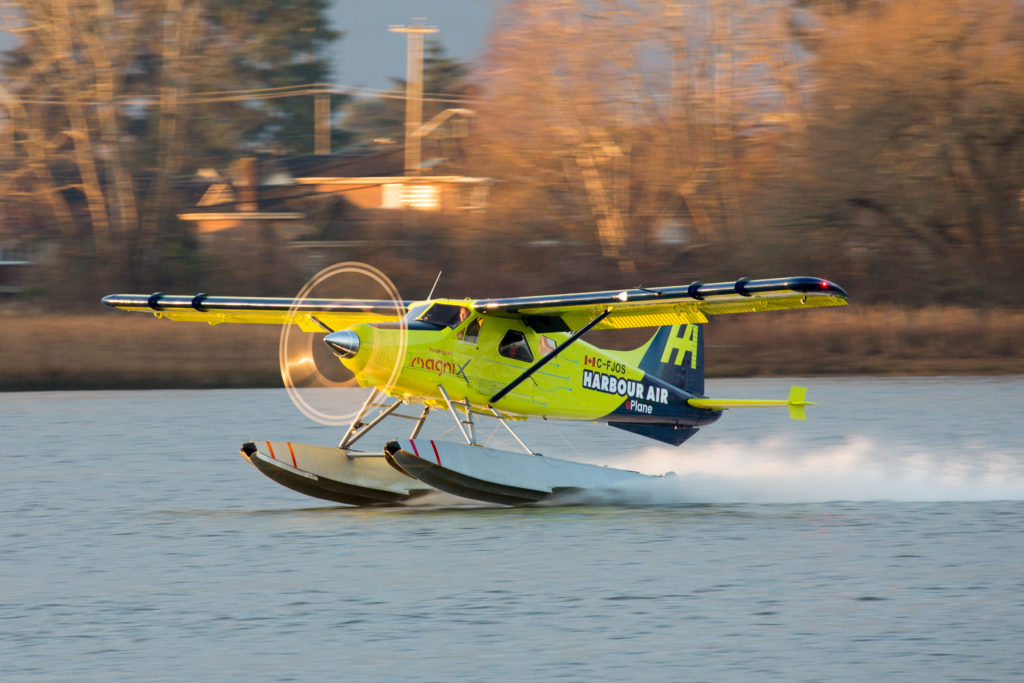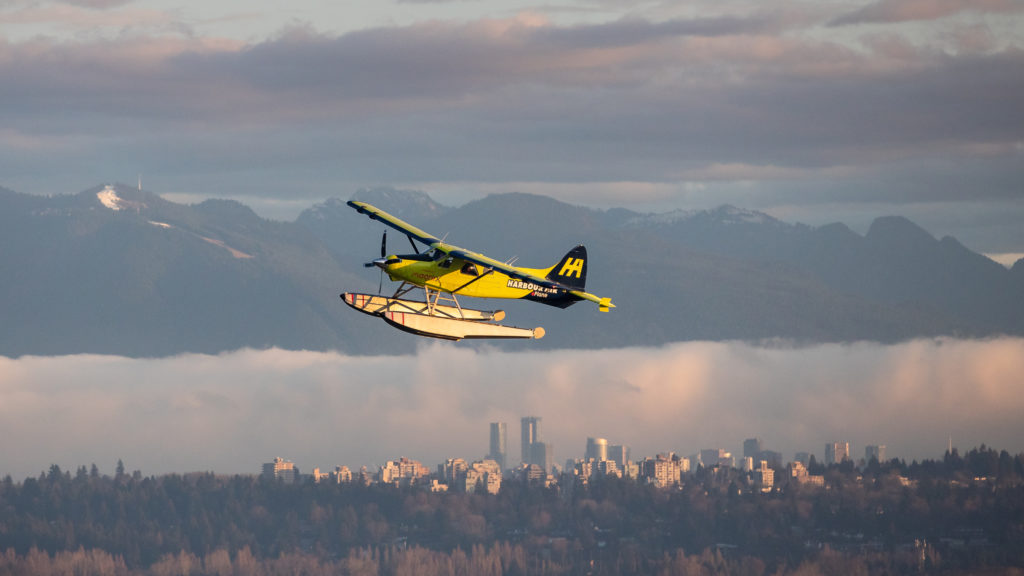Estimated reading time 8 minutes, 9 seconds.
Greg McDougall is guiding Harbour Air to play a pioneering role in the development of electric seaplanes. In December 2019, the founder and CEO of Harbour Air piloted a test flight of a de Havilland DHC-2 Beaver that was specially retrofitted with electric propulsion technology.
Harbour Air, whose head office is based in Richmond, British Columbia, is collaborating on the “e-Beaver” plane with MagniX, the electric-motor firm based in Seattle.

More than one year after the successful test flight, McDougall remains an unabashed booster of research and development for electric aircraft. Industry experts predict it will be another two decades before electric planes are commonplace, and even then, it would likely be small aircraft on short-haul routes.
How many years it will take for Harbour Air to gradually convert to a fleet of electric seaplanes is unclear, but in McDougall’s mind, it’s closer than skeptics think. He is steadfast in his optimism for an eventual transition away from internal combustion engines in commercial aviation, and the conversion to electric-powered planes.
“It’s basically unstoppable in terms of electrifying aviation,” he said in an interview with Skies. “We’re kind of paving the way on the regulatory side.”
In August, the U.K.-based Honourable Company of Air Pilots (HCAP) recognized McDougall for his leadership, and for piloting the commercial test flight of the e-Beaver. “The feat marked out McDougall as one of aviation’s great innovators at a time when environmental concerns are driving radical change amid the search for alternatives to fossil fuel-based propulsion,” the HCAP said in a statement.
McDougall knows to balance his enthusiasm with reality checks, especially with many challenges ahead before Harbour Air’s testing of the e-Beaver graduates into something more elaborate. He flew the e-Beaver in late 2019 as the lone occupant of the plane that can carry six passengers, and believes the day will come for paying customers to be aboard the single-engine, four-blade propeller plane.
In the meantime, he is prepared to endure a few bumps along the road toward his ambitious goal: to convert Harbour Air’s fleet of more than 40 seaplanes into aircraft driven by electric motors. “We had to send the motor that we were using in the test plane back to MagniX to have it reworked, because there were some glitches,” said McDougall. “We have the motor back, and now we’re looking at a new battery pack. . . . The pack we were using for the original test flight was quite heavy and low energy density.”
The new lithium-ion battery pack will have double the longevity of the original, meaning Harbour Air would gain much more flexibility for its short-haul flights.
While MagniX is a full-fledged partner on the eBeaver, the prototype is still evolving, and different battery companies are part of the efforts to make continuous improvements. Transport Canada approved extra flight tests for the eBeaver earlier this year, and Harbour Air was allowed to apply for permit extensions as required.
The seaplane company’s route map in 2019 included Seattle, and numerous B.C. destinations such as Victoria, Whistler, Richmond and downtown Vancouver. But in 2020, Harbour Air was no exception to the industry trend of experiencing sharply reduced traffic as the COVID-19 pandemic’s impact hit hard.

In the autumn of 2019, for example, the carrier handled an average of 800 to 1,000 passengers each day. But business slumped to the range of 150 to 200 passengers daily in the fall of 2020.
McDougall said it is difficult to forecast what passenger loads will be in 2021. “All of the regular rules that you would use for forecasting has kind of gone out the window to a certain extent,” he said, citing uncertainty such as the timing for when vaccination programs could have a major positive impact on the travel industry.
On the optimistic end, Harbour Air hopes that the summer of 2021 will start showing noticeable improvement amid pent-up demand for travel.
There are a range of scenarios, dependent on how long it might take for business and leisure travel to rebound from the COVID-19 crisis. “You just can’t hang your hat on any one thing,” he said. “So what we do is [plan for the] worst case, mid-case and best case.”
McDougall, who founded Harbour Air in 1982 with two seaplanes, is a minority shareholder in the Canadian-owned company. A motorcycle manufacturer, China-based Zongshen Industrial Group, acquired a 49-percent interest in Harbour Air in 2015, but it is no longer a shareholder.
The five-year involvement of Zongshen didn’t pan out as hoped, with dreams fizzling out for the formerly grand plans to export Canada’s floatplane expertise to China.
McDougall ended up persuading Zongshen that it would be better for Harbour Air to focus on British Columbia. “They certainly concurred because of the challenges that were happening in China,” he said.
The past couple of years have been a roller-coaster ride for McDougall, with highs such as being inducted into Canada’s Aviation Hall of Fame in 2019, and lows including coping with pandemic-related economic shock in 2020.
McDougall said Harbour Air can’t afford to be caught napping while the industry undergoes technological reforms in the years and decades ahead. “We’ve been innovative in terms of adopting new technology,” he said. “Either you’re going to be a part of it, or you’re going to be just sitting there at the sidelines watching it happen, and wondering how your business changed.”








